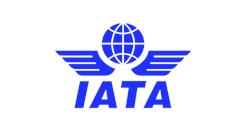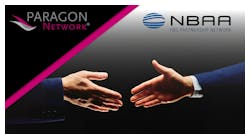So you've gotten the go-ahead to attend a trade show. Now how should you prepare to get the most out of it for you and your company?
First, check show literature or the web site to know what events are scheduled.
Besides knowing the show schedule know what you want to accomplish. Set priorities.
Are you interested in training, new products, or networking with others in the industry? Compare your goals with show events. Look at the exhibitor list and if a new product could provide the solution you need, check to see who manufactures it. If networking is your motive, look for round table discussions, hospitality events, or company tours.
Scheduling
Everyone schedules work time, so you should also schedule your convention time. "Trade shows aren't a time to kick back, they're a time to enhance your career through knowledge and contacts," according to Craig Conroy, an aviation researcher and speaker. "They are career building events that need to be planned. And the better shows arrange separate times for technical sessions and exhibit hours so there is easy access to both venues."
To solidify your schedule, make appointments and register for technical sessions. Preregistering will save you long lines at registration. Plan who you want to see by looking at the exhibitor floor map. And even if you don't know what a company manufactures you can always plan to stop and ask.
Trade shows are a great time to renew acquaintances and network with people in the industry. Set up meeting times at breaks or during lunchtime. If networking is a priority you might want to plan an extra day to visit a similar facility if not already part of the show program. A behind-the-scenes tour will broaden your perspective of the industry. It can also provide valuable contacts if considering a job change.
Schedule time with vendors to make product comparisons, and give yourself time to analyze the differences. You don't have to plan it to the minute but designate blocks of time and try to see a minimum of three competitors for products or services you're involved in making recommendations or authorizing the purchase for. Create your own notes and list the major features or drawbacks. Get as much information as you can to be an informed, selective shopper.
Specialized training may be available for certain products or services. Calling ahead of time could make it accessible during the show. Or it may be available on site or at the company's site for little or no cost if you are interested in signing on for a particular product or service, Conroy says.
Shoes, etc.
Being on your feet all day can be painful. Dress accordingly. Whether it's Florsheim or Rockport, wear a professional-looking yet comfortable pair of walking shoes. A welcome exhibitor is the one selling foot and back massagers, you just have to sit down and try them.
Along with attire, if you have a cell phone, make sure to pack extra batteries or a recharger. Also check with your provider to make sure of the roaming charge policy so you don't get a surprise when the bill arrives. The convenience of a cell phone makes you accessible to work, family, and show attendees.
Sleep
Get to shows ahead of time and try to get a few extra hours sleep before you arrive. The typical trade show day is different from a regular workday - it's longer. Training sessions and visiting exhibit areas and hospitality suites can extend the daily routine by more than a few hours. And being in a new environment could create sleeping problems, so being well-rested will help in being prepared.
With a schedule and goals in place, your preplanning should make your trade show experience a success.
Additional ReSource
Craig Conroy,
Conroy Resource Group,
(800) 344-1492,
www.craigconroy.com




